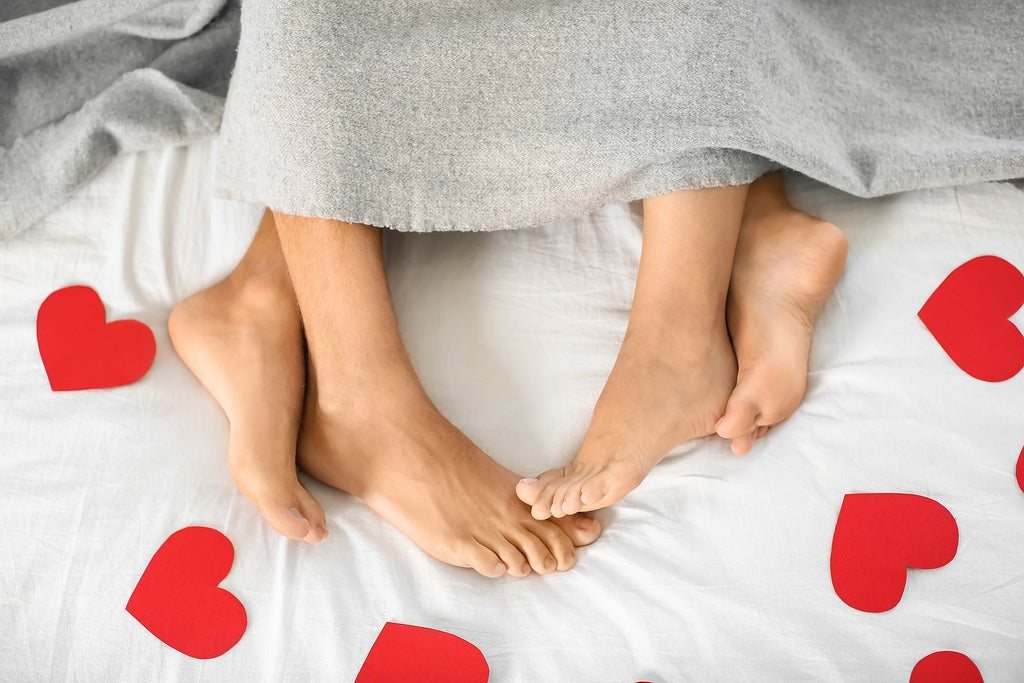How Much Sleep Do We REALLY Need?
It’s estimated that 40% of Americans are sleep deprived. And 20% deal with insomnia (habitual sleeplessness).
Recent studies have shown that between seven and nine hours of sleep every 24 hours is what you need. That’s the sweet spot for adults. Anything less than seven hours in a 24-hour period is too short.
Of course, many issues get in the way of a good night’s sleep. For instance, if you’re like me, with three kids in the house, there’s a 100% chance that you’re sleep-deprived. Some other common causes of sleep deprivation are obesity, a sedentary lifestyle, smoking, excessive alcohol use, nutritional deficiencies, and illness.
Why Is Sleep So Important, Anyway?
You mean aside from the fact you need sleep just to function each day and then recover?
Lack of sleep puts you at greater risk for heart disease and cancer. Those are the number one and two causes of death right there.
If that’s not enough, lack of sleep increases your risk for diabetes and depression. It will also compromise your immune system and your metabolism!
Some Health Problems Cause Sleep Problems
While lack of sleep causes health issues, some health issues make it really difficult to sleep a full seven hours. Things like indigestion, restless leg syndrome, sleep apnea, and asthma can all interrupt your sleep. So can anxiety, blood sugar imbalance, and nutritional deficiencies. Then there are systemic disorders with your lungs, liver, or kidneys, endocrine problems, issues of brain function, and more.
Your Diet Can Cause a Sleeping Problem
Poor diet or eating too close to bedtime are factors that are linked to short sleep (meaning less than seven hours in a 24-hour period). In return, poor dietary habits can also be caused by sleep deprivation. Eating too close to the time you go to bed can lead to shortened sleep, which can then cause hormonal changes that can lead to poor dietary choices and an appetite that will make it hard not to eat near bedtime. Talk about a vicious cycle!
Why Does Your Body Need Seven Hours Per Night?
You may think of sleep as a time when your body shuts down, right? The truth is your brain is still engaged in activities that support your survival. A healthy amount of sleep creates brain plasticity, which is your ability to adapt to data during waking hours. While you sleep, your brain has a chance to organize and store data from the waking hours, consolidate the information, and transfer it from short-term to long-term memory. Proper sleep helps you process what you’ve learned and remember things in the future. If you doubt that last claim, think back to a time when you didn’t have enough sleep and how hard it was to remember things.
Then there’s that simple yet wonderful feeling of rejuvenation after a period of good rest. That comes from the physical repair your body undergoes during sleep. Tissue repair, muscle growth and repair, and hormone production all require rest.
The Obesity Link
Most people want lose a few pounds. But what they may not know is that one of the strongest risk factors for obesity is sleeping less than seven hours every 24 hours. Adequate sleep supports weight loss. It’s that simple. And it applies to anybody.
Proper sleep reduces obesity risk in a number of ways. For starters, when you’re rested you’re more likely to have motivation to be active and eat better. When you’re tired, you’re more inclined to be sedentary and eat poorly. Physical activity improves sleep quality. If you let yourself become sleep-deprived, the appetite stimulating hormone ghrelin skyrockets, while leptin the appetite suppressing hormone goes way down, making it harder to control caloric intake and easier to gain weight.
When you’re sleep deprived, you’re more likely to make impulsive food choices. A 2018 study published in the American Journal of Nutrition revealed that people who slept just one more hour per night consumed less sugar than those who had shorter sleep. The difference in sugar reduction in that study averaged 10 grams, which sounds like very little, but is plenty to affect your weight and overall health.
Sleep To Avoid Disease
Getting enough sleep can reduce systemic inflammation, help you avoid disease, and maybe even help you live a longer life.
Don’t fall for the idea that you can ‘catch up on sleep’. Periods of sleeplessness have a negative effect on your body, period. There’s no way to undo the damage at a later time.
So, the key is to get consistent healthy sleep so you can function at your best, allowing your body to heal, and lower your risk for chronic disease.
Eat well, be active, do some things each day that make you feel happy, and take quality nutritional supplements. You can even try my non-pharmaceutical, nutritionally-packed sleep-enhancing supplement Vitamin Zzzz to help you get plenty of quality sleep without feeling groggy.
"Zzzzzzzzzzzzz... That is all i can say about this. Love the extra vitamins for cold season. Haven't gotten ill yet (knock on wood). As far as putting me to sleep... Yep, it works... Great product..."
Jonathan M | ⭐️⭐️⭐️⭐️⭐️
Vitamin Zzzz
Sharing is Caring
Know Your Body - Know Your Health






